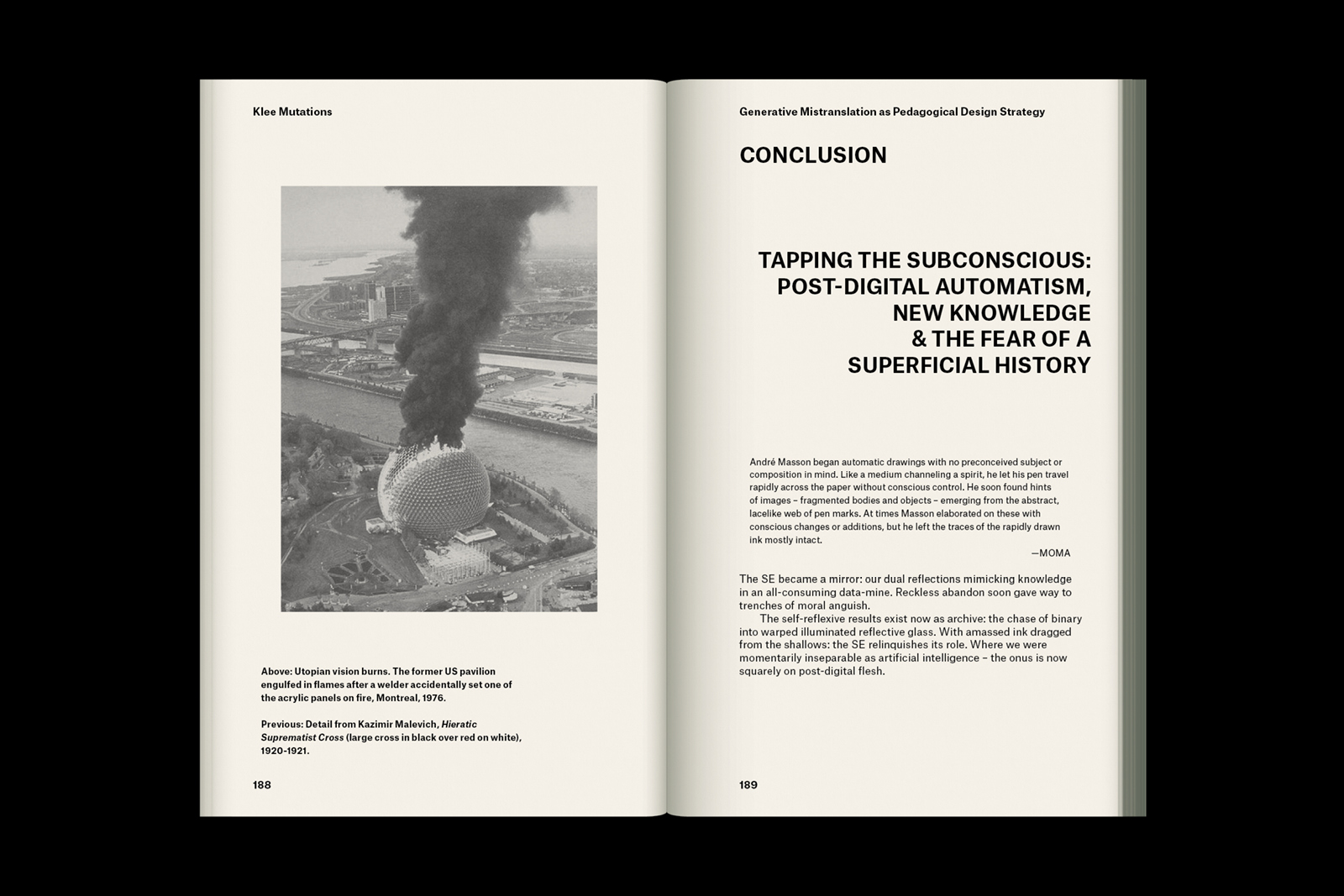Klee Mutations: Generative Mistranslation as Pedagogical Design Strategy
- AU$25.00
- 212 pages
- 10.8 x 17.8 cm
- Softcover
- ISBN: 978-0-648-04663-9
- Design: Duncan Blachford
Tapping the subconscious: Post-digital automatism, new knowledge and the fear of a superficial history.
The present day conglomerate-arms of A.I mutate Paul Klee’s notorious Pädagogisches Skizzenbuch with a tactical wrassling of faulty OCR and problematic binary-translations; an André Masson-esque approach to post-digital bookmaking, with a performative (and post-knowledge) mapping of German economics; the birth of sociology, and the six degrees of separation within avant-garde circles of the 20th century.
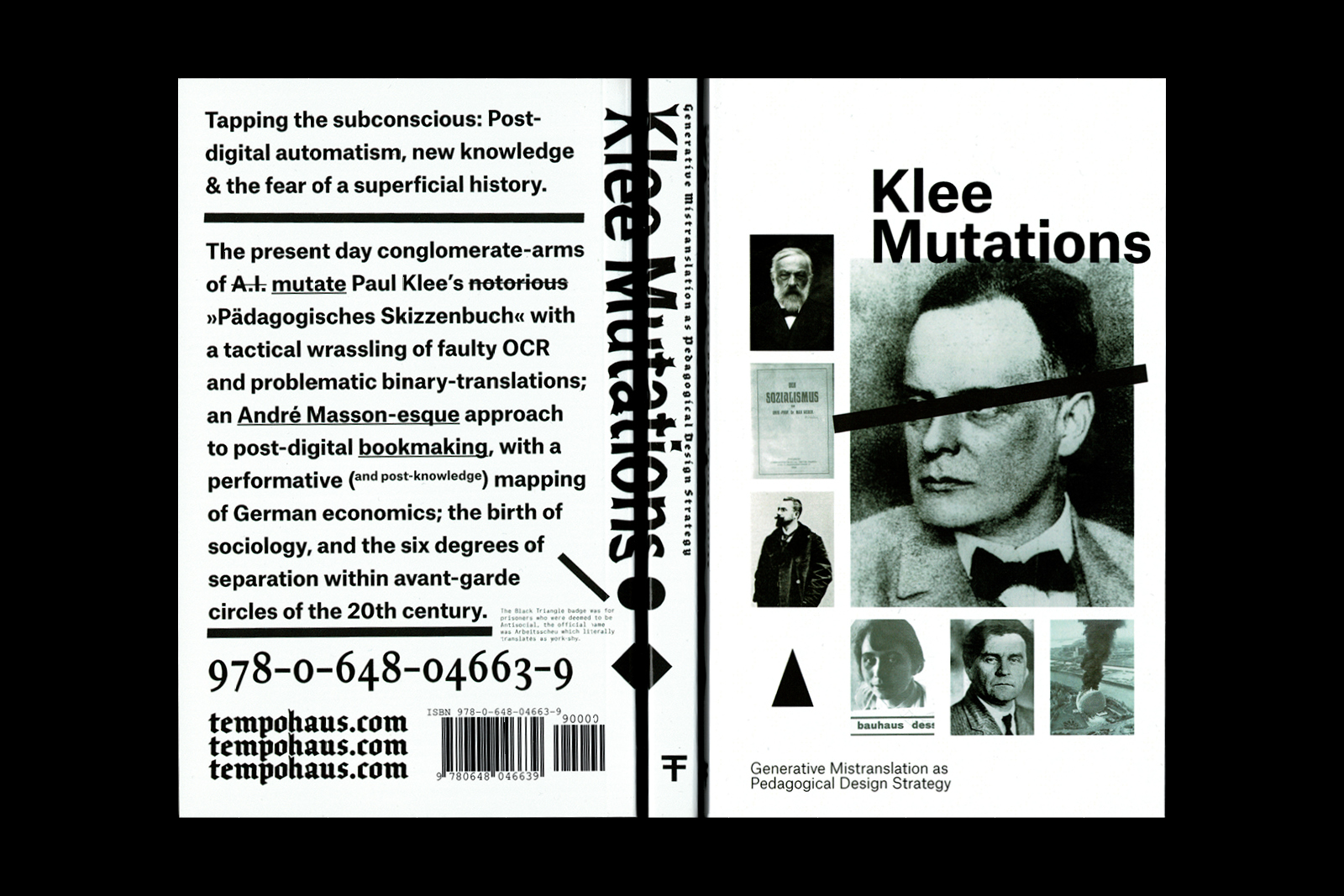

“The Search Engine becomes my mirror, albeit a transient reflection within a digital funhouse of expansive architecture.”


“Karl Wilhelm Bücher was a German economist, one of the founders of non-market economics.”

“[T]he working class should carry out organised revolutionary action to topple capitalism and bring about socio-economic emancipation.”
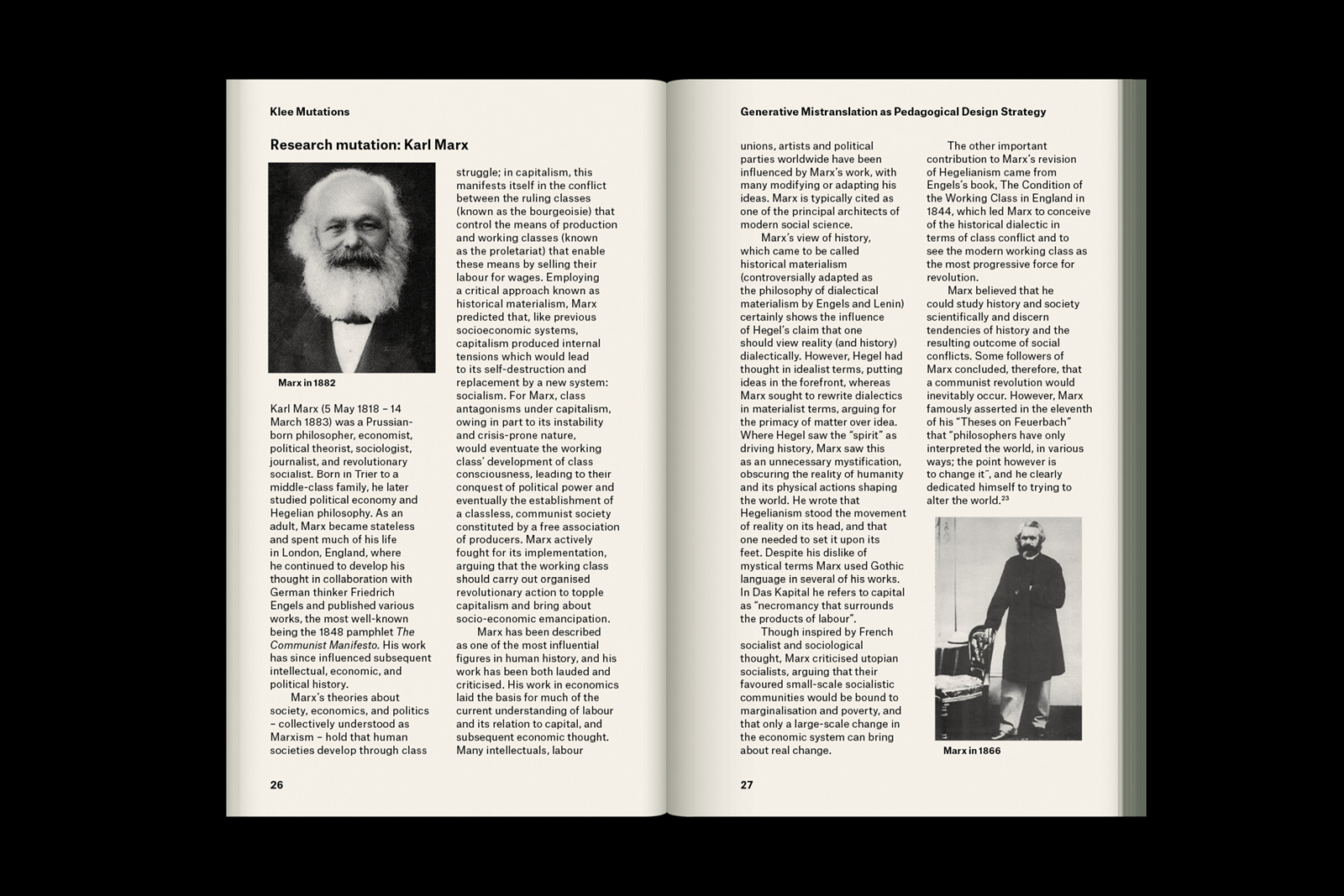
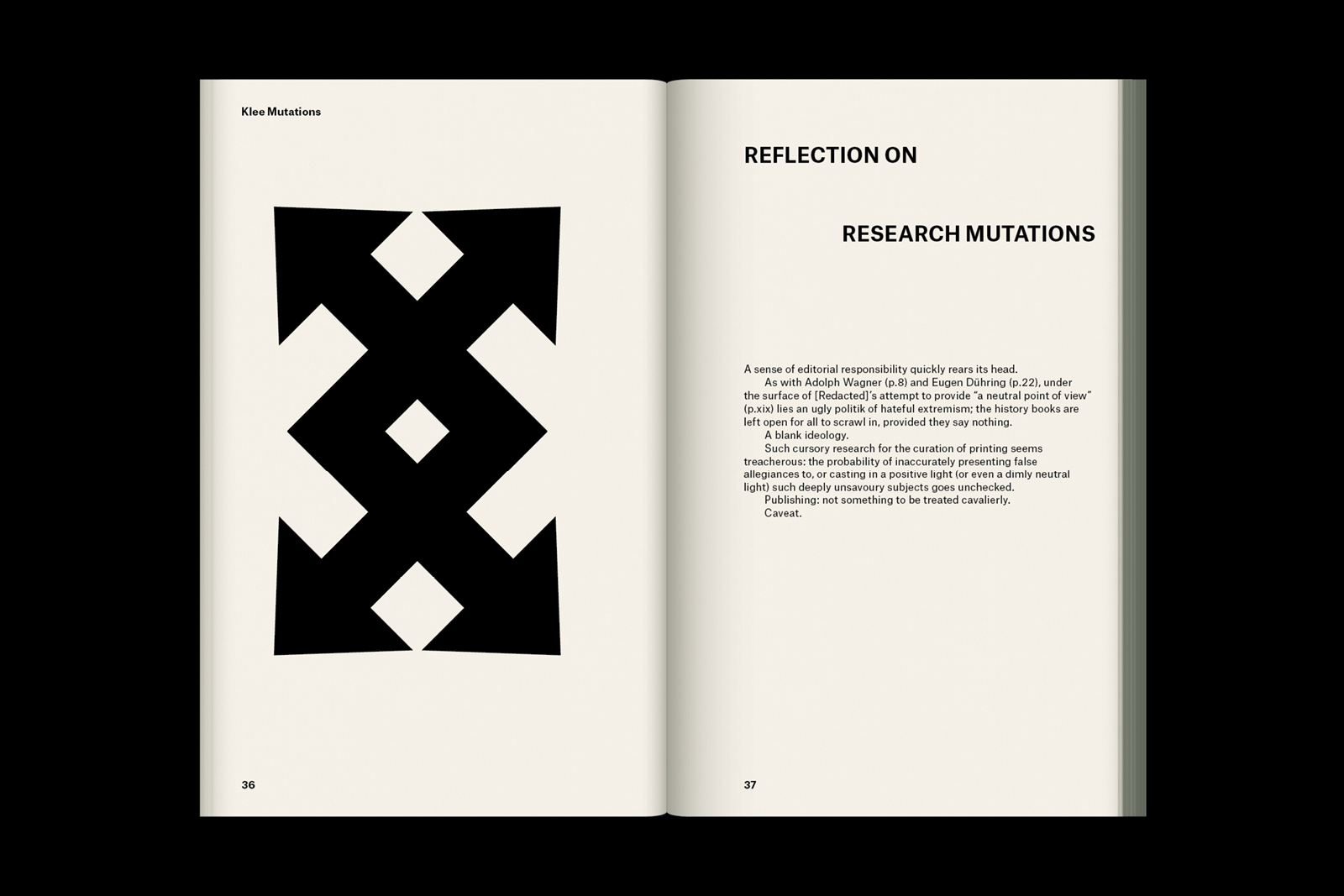
“As it is with the tongue, it is doubly so with the glyph.”

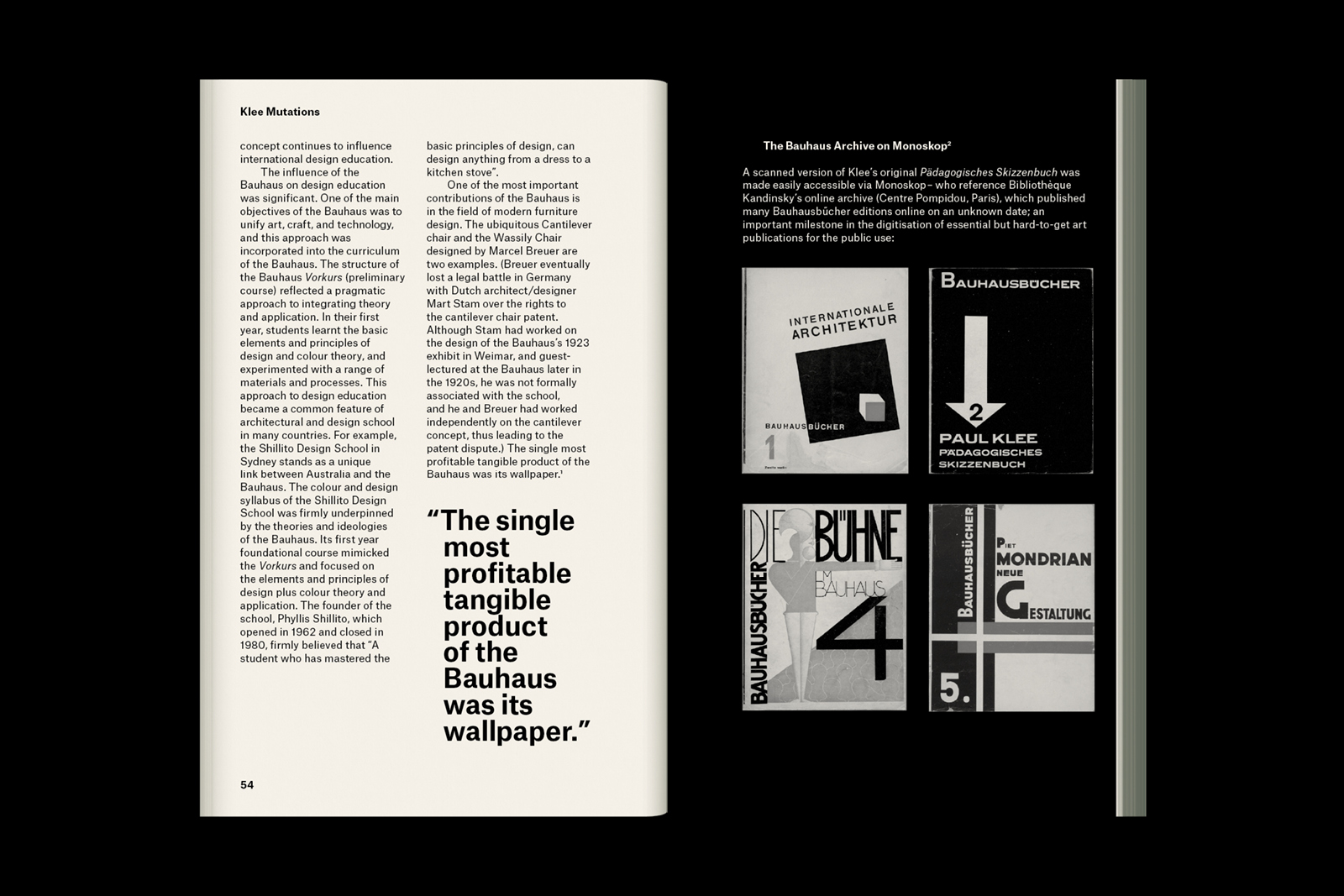
“Don’t shrink from chaos … take from it things that seem to represent life, and give shape to them.”
— Gunta Stölzl, diary entry from Bauhaus Weimar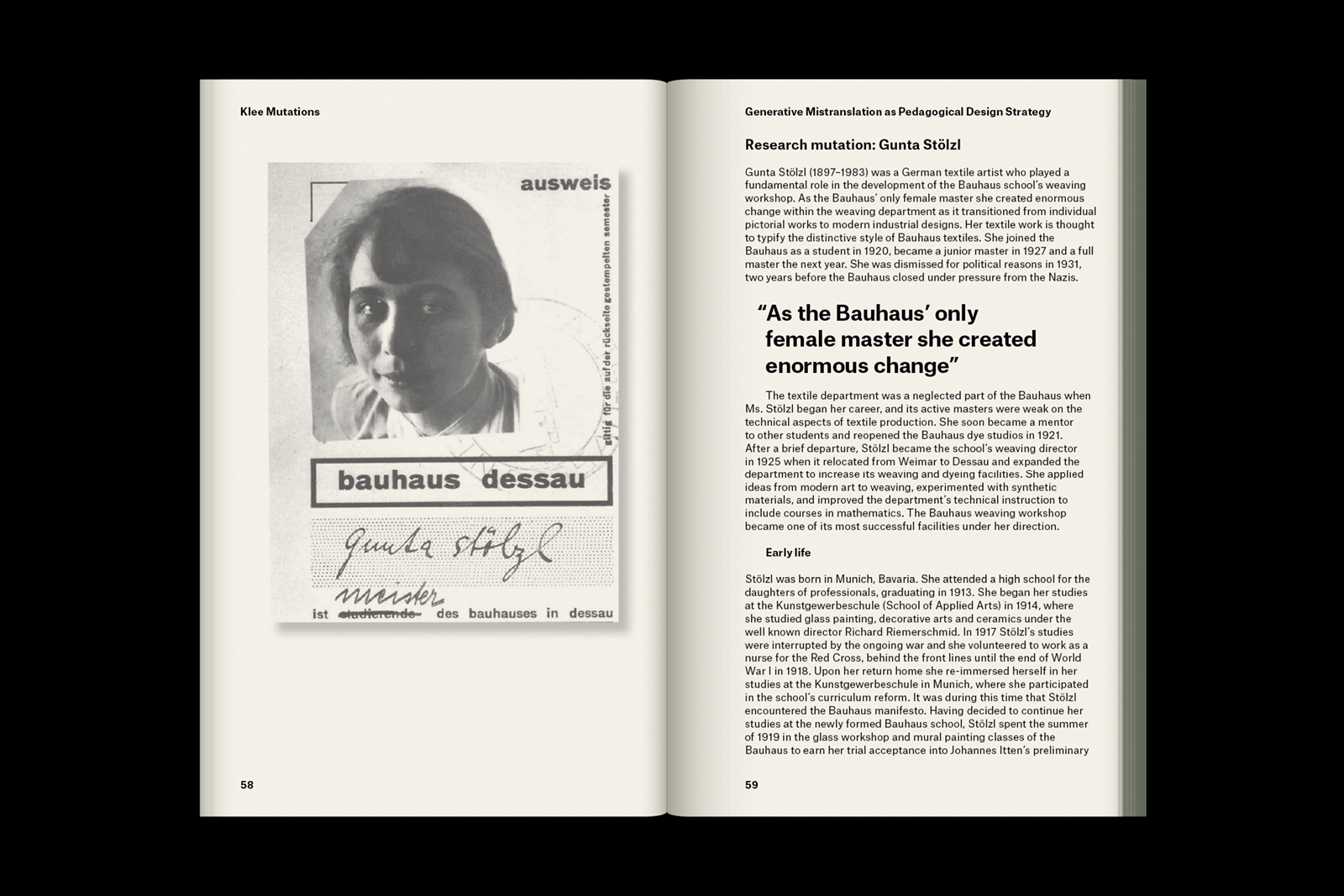
“Langen was not a typical publisher, in that he ran the company not only out of economic considerations, but also with a cultural-political mission.”





“Despite the renown he enjoyed at the height of his career, Paul’s name has been largely absent from the standard histories of the modern movement.”
— William Owen Harrod, Bruno Paul: The Life And Work of a Pragmatic Modernist
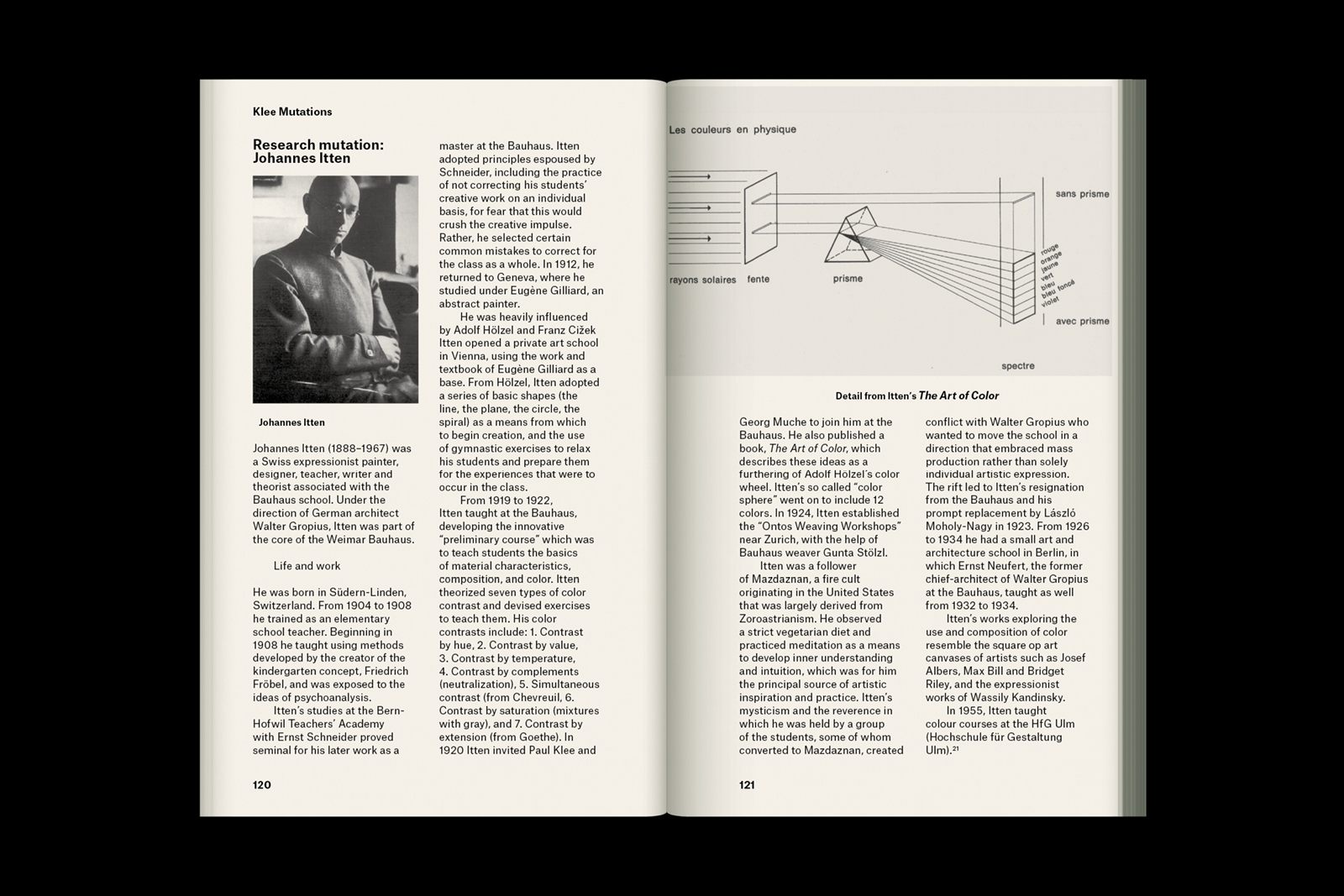
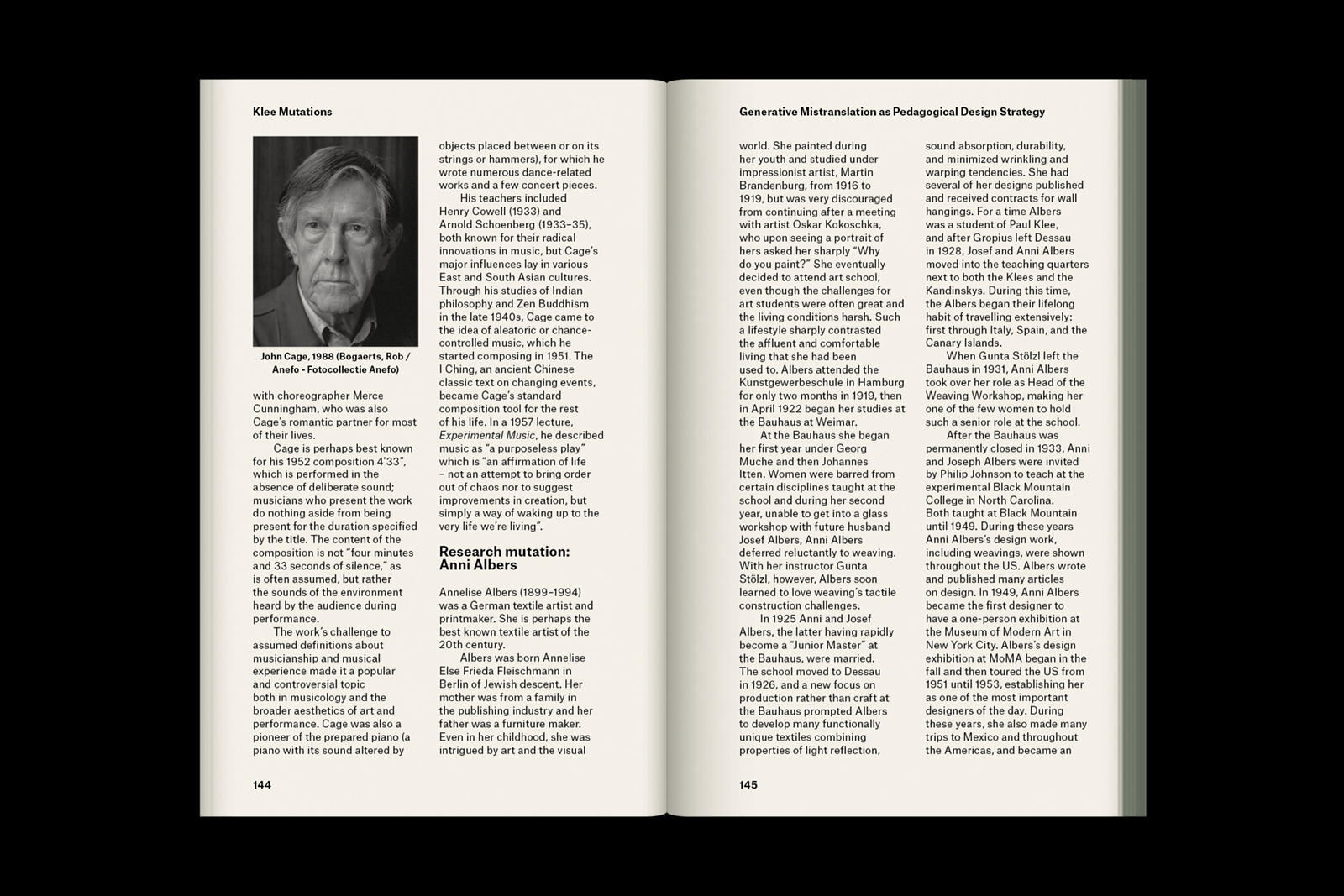
“Tschichold had converted to Modernist design principles in 1923 after visiting the first Weimar Bauhaus exhibition.”

